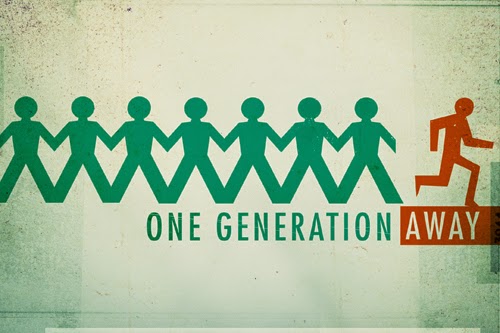When Joshua knew his remaining time was short he called for all Israel, for their elders and for their heads, and for their judges and for their officers. And with those national leaders surrounding him he spoke to them about his hopes and his aspirations for their future. He reminded them of what they had been able to do with the help of God and what they would be able to do moving forward with Him at their side. He encouraged them to keep their purpose and their goals in mind and commit themselves to accomplishing that purpose moving forward. He concluded by offering them their options and stating his objective of serving God and Him alone (24:14-15). Soon thereafter he died having heard those leaders commit themselves to doing the same (24:16ff).
What’s more is that those folks, that generation of leaders, kept their word. Though they were not perfect and failed in some key areas Judges 2:7 clearly says that “the people served Jehovah all the days of Joshua, and all the days of the elders that outlived Joshua, who had seen all the great work of Jehovah that he had wrought for Israel.” But then, even though everything had gone just fine, something drastically changed. That generation died “and there arose another generation after them, that knew not Jehovah, nor yet the work which he had wrought for Israel” (vs. 10). Faithful parents, faithful grandparents, and yet when they all died an entire generation became disillusioned with God and fell back into sin.
They came from such a spiritually privileged background. They benefited from growing up in the shadows of righteous people. They were able to witness what true devotion to God was like. They experienced the blessings that came with living lives committed to God. And yet even though they knew better when they came of age, for whatever reason, they left it all behind and abandoned the Lord. But why?
I wish I could pretend to know the answer to that question. Maybe the parents didn’t give as much attention to teaching righteousness to their children as they did to living it (Deuteronomy 6:6-8). Maybe the children heard righteousness and saw righteousness but they just didn’t accept righteousness. Maybe it was a combination of the two. But whatever the reason what happened with them should wake us up to the reality of what could happen among us today.
No group of people, regardless of how righteous they may be, no matter how committed to God they are, are ever more than one generation away from absolute and total apostasy. Regardless of how righteous a nation can be, it is never more than one generation away. Regardless of how faithful a congregation can be, it is never more than one generation away. Regardless of how committed a family can be, it is never more than one generation away. So what can we do?
- Older men, “be temperate, grave, sober-minded, sound in faith, in love, in patience” (Titus 2:1).
- Older women, “be reverent in demeanor, not slanderers nor enslaved to much wine, teachers of that which is good” so that you can “train the young women to love their husbands, to love their children, to be sober-minded, chaste, workers at home, kind, being in subjection to their own husbands, that the word of God be not blasphemed. “ Encourage the younger men “to be sober-minded.” And “in all things showing thyself an ensample of good works; in thy doctrine showing uncorruptness, gravity, sound speech, that cannot be condemned; that he that is of the contrary part may be ashamed, having no evil thing to say of us” (Titus 2:3-8).
- And by all means, young men and women “be subject unto the elder. Gird yourselves with humility, to serve one another: for God resisteth the proud, but giveth grace to the humble” (1 Peter 5:5).
There is nothing that we or anybody else can do to ensure the righteousness of any generation to come. But we can produce an environment that is far more conducive to their acceptance of godly principles and their willingness to maintain a level of commitment to God. We may not be more than a generation away from possible apostasy but we can and must be proactive in helping all future generations come to a knowledge of the truth (1 Timothy 2:4).
-Andy

